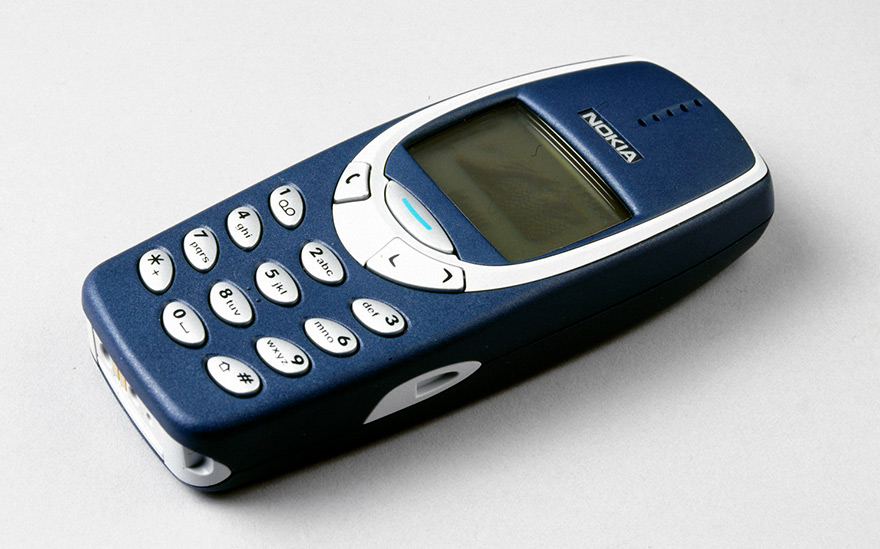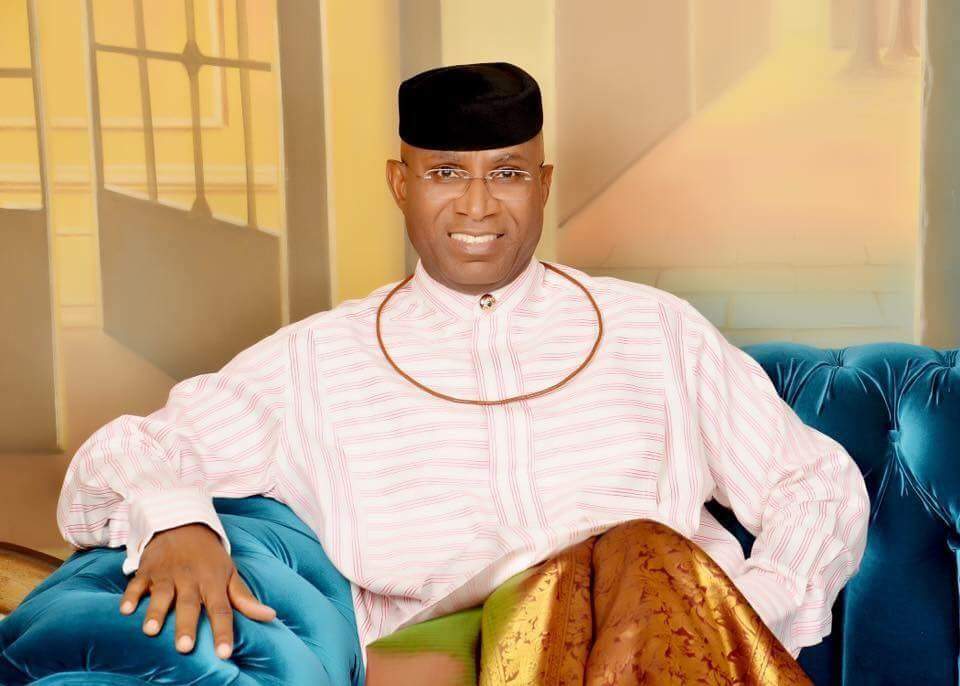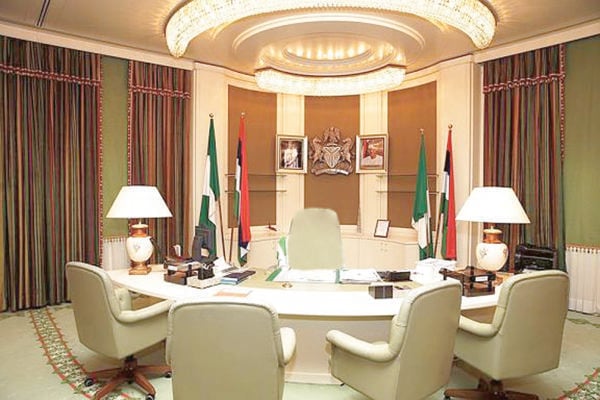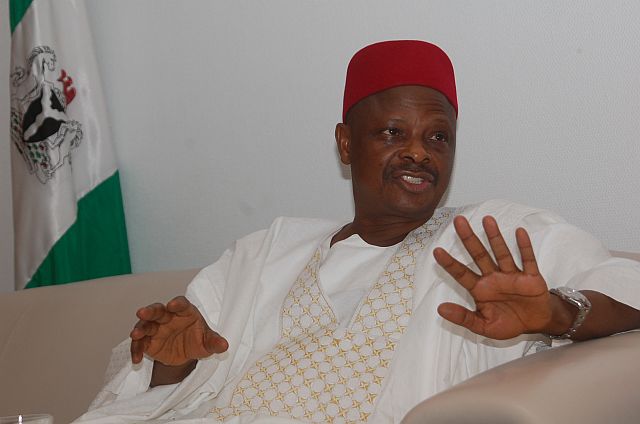My friend lives in the Federal Capital Territory (FCT) and naturally feels entitled to the good things coming from the seat of government; or modified slightly, feels entitled to the enhanced quality and bounteous provisions for the status of a country’s capital, the way other capitals of other countries of the world are treated. By way of living the life, he used to walk with some kind of gait, a little swagger which unfortunately has been humbled by reality. Yes, reality is a metaphor that sticks closer than the skin.
My friend called me within the week and was effusive at the other end but reality supervened. The phone simply went dead while he talked on. When we reconnected much later after several attempts from both ends, the first words that left his mouth was “I am returning to my Nokia 3310.” For me the laughter came very naturally and then, of course, irony quickly obliterated it.
Yes, the irony of life or even the contradictions that we seem to wear like apparition. My friend is a learned man, not in the manner of the legal practitioners who mock us with being the only learned people around; he got to the zenith of his profession in the civil service before taking a deserved rest. In all his thinking that very day, the only saviour from the down spiral the nation is experiencing in telecom service delivery is the old reliable. Nokia 3310.
The laughter came because with all my fascination with tech gizmos, I had actually forgotten that specie of Nokia that was very close to me. I loved Nokia and when I had the opportunity to visit their offices and factory in Helsinki, Finland, the fascination grew even stronger; how a company that operated since 1865 as a paper industry could continue to renew itself, going through wars and all the terrible times of history to remain a brand of reference and preference.
Advertisement
Real growth began in Nigeria’s telecommunication industry in 2001. The Nokia 3310 that my friend remembered a couple of days ago to weather the nation’s telco failing infrastructure, was launched on September 1, 2000. It was a monster product, a direct hit not only in the Nigerian market but globally. Nokia 3310 conveniently replaced the Nokia 3210 and shipped 126million units worldwide. It remains one of the most successful brands of the equipment manufacturer. This was long before Blackberry, iPhone, Samsung, among others, made their hits.
My friend said Nokia 3310 was rugged; nothing tantalising or seductive. One could forget it in a taxi and the cab driver would call you back to take your equipment.
How we seem to have made so much progress in the country! Running far into the future and, all of a sudden, everything is put in reverse gear. The journey is not only slowed down but growth and development are compromised or just wiped off by the selfish and or uninformed decisions of those who hold sensitive positions in government.
Advertisement
I couldn’t tell my friend that the problem was not the tool in his hand or even the networks but some extraneous activities that seem to subterraneously sabotage the business of those who genuinely set out to provide telecom services. Abuja, the seat of government is a very notorious point of reference, and it has worn this garb of infamy since the days of el-Rufai who, as the Minister of FCT at the time, told everybody who cared to listen, that the city was not designed with telecom base stations in mind. Years later, the story continues, and more people are streaming into the city in search of daily survival, and struggling for the little telecom signals floating out there.
My friend would love to conjure up his Nokia 3310 or simply just wave a magic wand and bring it back to life. But reality forbids certain things except in the field of pure abracadabra where things could be more illusory than real.
Market deregulation started in Nigeria in 1992 with the telecommunications and broadcast industries enjoying the benevolence of the military who loved to hold on to power and certain industries. That action which was through military decrees has further been cemented by the Nigerian Communications Act 2003 and the National Broadcasting Commission Act CAP N11, Laws of the Federation of Nigeria 2004.
For instance, the functions of the Nigerian Communications Commission (NCC) are clearly spelt out in Section 4 of the Act which, among others include: “the facilitation of investments in and entry into the Nigerian market for provision and supply of communications services, equipment and facilities.” This, for me, is one of the primary functions of the NCC but the execution has been rendered very difficult by all kinds of sundry intrusions that are manifest signs of the times we are in as a nation.
Advertisement
My friend will need to hear this and stop blaming his receive equipment. Just a little inquisition at the Commission within the week, multiple sources told this writer that one of the biggest problems responsible for quality of service are fibre cuts by construction workers, which happen across the nation. At some point between 50 and 70 cuts were recorded daily. Giving very troubling figures a particular source said that in a single year, between 15, 000 and 26, 000 fibre cuts could be recorded. “How do you get good quality of service under this condition?” the source moaned.
It is quite clear here that although the NCC is responsible to some key stakeholders which include: the government, the subscribers and the operators, there is the need to add the people factor which seems to be causing overriding health concerns for the telecom industry. Beyond regulation, there may be the need for the NCC to create peace ambassadors, because it is the people that make up the construction workers; it is the people that will extort all kinds of money from the operators and shut down their services with minuscule provocations.
Of course there are so many things in the plate at the moment that I am sure by now the regulator will be flummoxed. Insecurity is not letting off, power generation has dipped very badly, and the cost of diesel to power base stations and deliver other sundry services has broken all economic wisdom. It is a miracle that there are services at all.
But the Abuja situation gets more complicated when the above concerns are added to what seems a boiling cauldron already. Industry sources expressed displeasure that authorities of the FCT are taking the collocation services providers through a wringer, either in their demand for superfluous charges or even to get permits for new base stations. Frontlined by the Department of Outdoor Advertising and Signages, (DOAS) the authorities are charging as much as N1.5m for site processing fee,
Advertisement
N500,000 for administrative renewal fee, and another N20,000 as application fee. The collocation service providers which include: IHS, ATC, SWAP, Communication Towers, among so many others, are carrying a perpetual headache at the FCT which they now also pass to the service providers before the subscribers. And my friend hopes that Nokia 3310 will deliver him from all this. What a joke!
I am told that the regulator has gone beyond regulation to engage in negotiations with intransigent state agencies, and also promote peace. It has to do more, otherwise the investment and service deployment which it is charged to promote will take a flight to saner environments.
Advertisement
Views expressed by contributors are strictly personal and not of TheCable.
Add a comment







